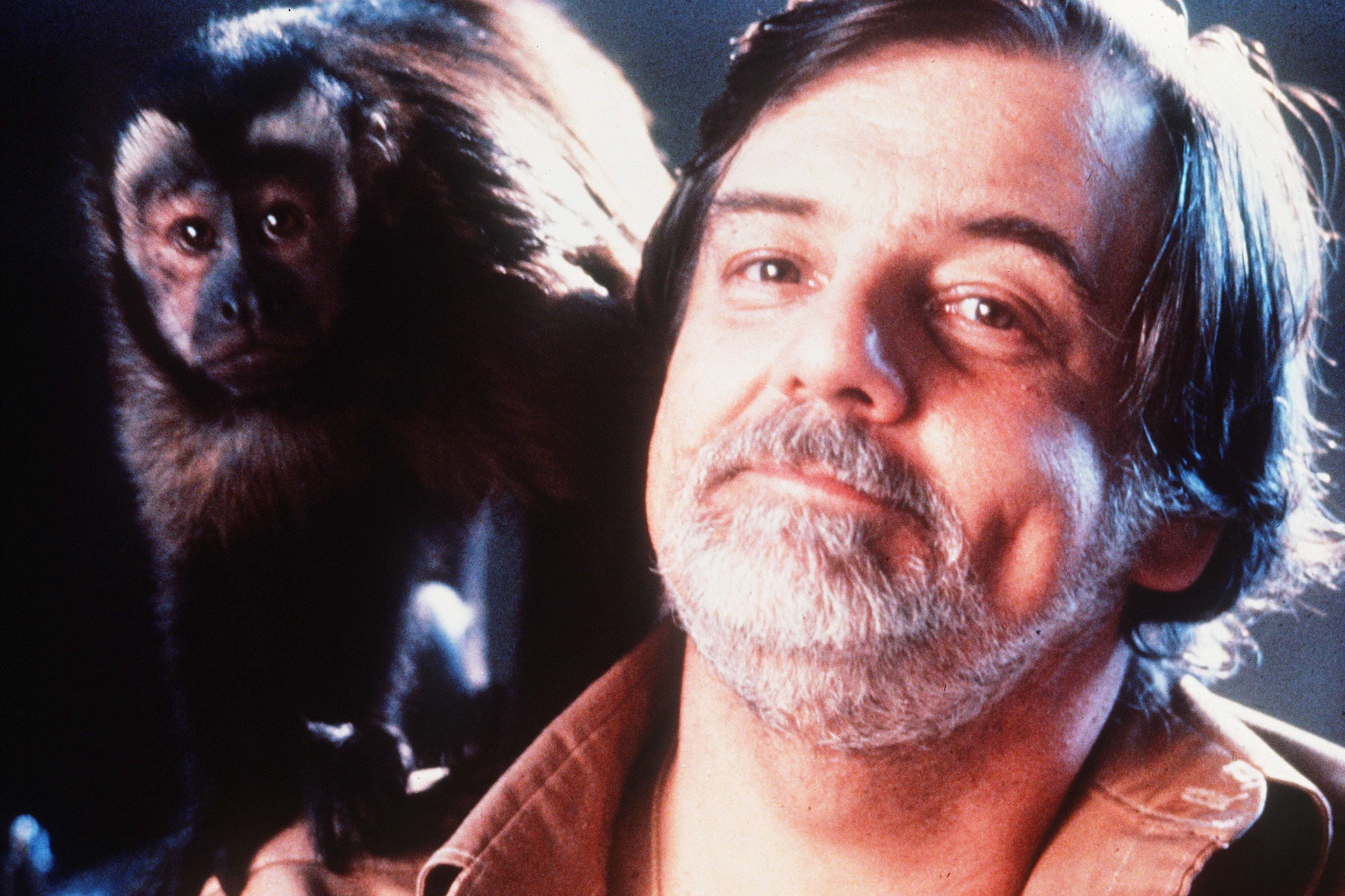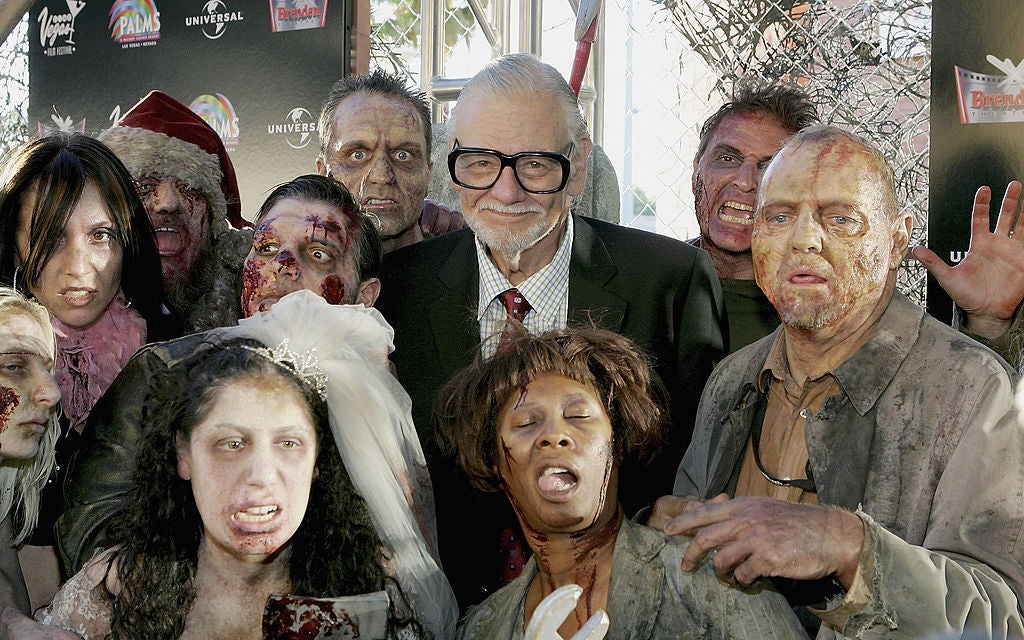George A Romero: film director and pioneer of the modern zombie movie
‘I have a soft spot in my heart for the zombies: you can’t really get angry at them, they have no hidden agendas,’ he once said

Your support helps us to tell the story
From reproductive rights to climate change to Big Tech, The Independent is on the ground when the story is developing. Whether it's investigating the financials of Elon Musk's pro-Trump PAC or producing our latest documentary, 'The A Word', which shines a light on the American women fighting for reproductive rights, we know how important it is to parse out the facts from the messaging.
At such a critical moment in US history, we need reporters on the ground. Your donation allows us to keep sending journalists to speak to both sides of the story.
The Independent is trusted by Americans across the entire political spectrum. And unlike many other quality news outlets, we choose not to lock Americans out of our reporting and analysis with paywalls. We believe quality journalism should be available to everyone, paid for by those who can afford it.
Your support makes all the difference.George A Romero was a director who, with Night of the Living Dead, pioneered a form of horror film that added social commentary to the gore and mayhem created by flesh-eating monsters on screen.
Ghouls in a form familiar to cinemagoers – and long known as “zombies” – were seen attacking a group of humans trapped in a Pennsylvania farmhouse. Duane Jones played the sole black character, who survives the creatures, only to be fatally shot by one of his rescuers.
The 1968 cult classic, atmospherically shot in black-and-white for just $114,000 and written by Romero with John A Russo, came at the time of civil rights marches and Martin Luther King’s assassination, so some saw it as an attack on racism in American society.
It was Romero’s debut as a director and led other filmmakers to follow in his footsteps with zombie pictures showing the dead coming back to life and feeding on the living. Among an unending stream are John Carpenter’s The Fog (1980), Sam Raimi’s The Evil Dead (1981), Danny Boyle’s 28 Days Later (2002) and Edgar Wright’s Shaun of the Dead (2004).
Ten years after taking the horror industry by storm with his reinvention of screen zombies, Romero returned with Dawn of the Dead (1978). Its tale of humans taking refuge from the undead in a shopping mall was both gruesome and humorous – and a swipe at the consumer society.
Then came Day of the Dead (1985), Land of the Dead (2005), Diary of the Dead (2007) and Survival of the Dead (2009).

“I have a soft spot in my heart for the zombies,” Romero once said. “They are multipurpose, you can’t really get angry at them, they have no hidden agendas, they are what they are. I sympathise with them.”
Romero was born in the Bronx, New York, to Cuban immigrant George, a commercial artist, and Ann, a Lithuanian-American. After graduating in 1960 from Carnegie Institute of Technology’s College of Fine Arts, in Pittsburgh, Romero remained in the city and joined a group of friends to make short films – as he had done himself from the age of 14 – and commercials.
Outside the zombie films, Romero’s career was hit-and-miss. Martin (1978) is about a moody young man who believes he is a vampire, Knightriders (1981) features jousters taking part in medieval tournaments on motorcycles and Creepshow (1982) is a horror anthology written by Stephen King
Romero also made fleeting uncredited cameo appearances in front of the camera, in his own films and The Silence of the Lambs (1991).
In 2014, he added comic books to his repertoire, creating The Empire of the Dead series for Marvel, which combined zombies and vampires.
Romero, who died of lung cancer in Toronto aged 77, was married three times, to Nancy McKim (1971-8), Christine Forrest (1980-2010) and Suzanne Desrocher (2011). He is survived by Suzanne and his three children: Cameron, from his first marriage – a producer-director who has made horror films – and Andrew and Tina from his second marriage.
George Andrew Romero, film director, born 4 February 1940, died 16 July 2017
Join our commenting forum
Join thought-provoking conversations, follow other Independent readers and see their replies
Comments